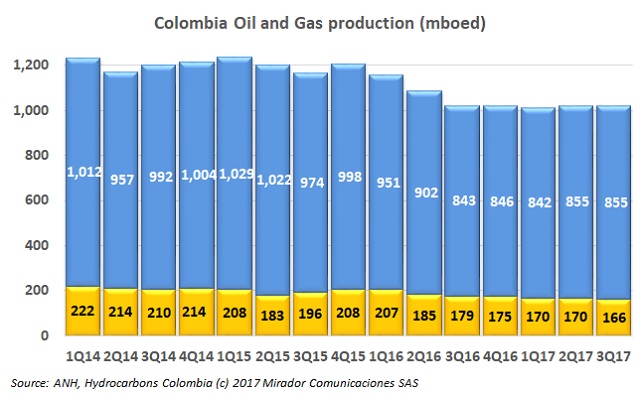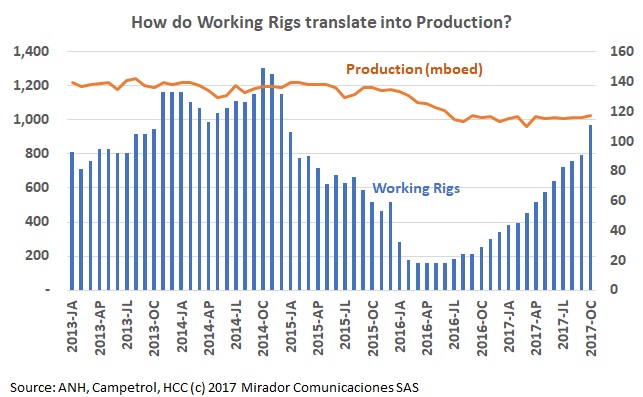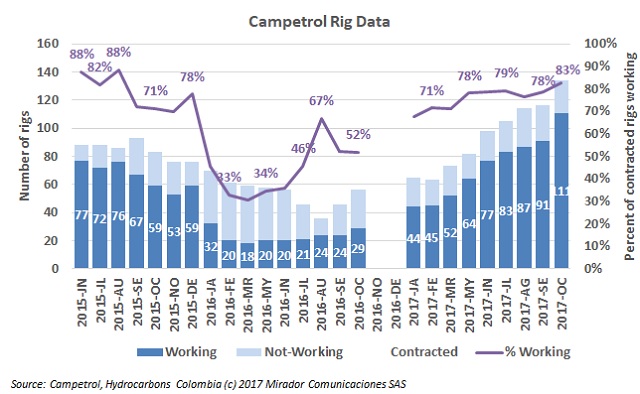According to a report from the Colombian Petroleum Association (ACP), companies invested US$3.4M in the country during 2017.
The president of the National Hydrocarbons Agency (ANH), Orlando Velandia, said that he is positive about next year because the country’s self-sufficiency measure will not fall like it has during the last four years.
The Colombian Association of Petroleum Engineers (Acipet) organized a forum on unconventional technologies (UC) in Bogotá. HCC was present and we bring a brief summary of the meeting.

The Colombian oil sector faced tough years recently as a result of low prices, but it seems things are slowly improving. Several representatives of the industry talked about the industry.
Representatives of the sector discussed Ecopetrol’s (NYSE: EC) fracking pilot proposal at Expo Oil & Gas 2017.

A reader asked the not-so-innocent question “If rigs are up so dramatically, why is not production?” That seemed like an interesting graph.

The Colombian Chamber of Goods and Services (Campetrol) reported its drill rig information for October. This metric maintains its positive trend, despite operating challenges in the country.
National Hydrocarbons Agency (ANH) Technical Vice President, Jairo Osorio, said that fracking has not been authorized or developed in Colombia and added that an initial exploration phase to determine whether there are unconventional reserves in the country has just begun.
The Colombian oil sector has faced some tough years, leading to few exploration projects and a reduction in production and reserves. However, the industry is showing a recovery in key metrics and this behavior is increasing expectations and perspectives.
Industry leaders and academics talked about fracking and seismic at the second “Colombia and the World of Fracking” workshop organized by the Society of Petroleum Engineers (SPE) in Bogotá.